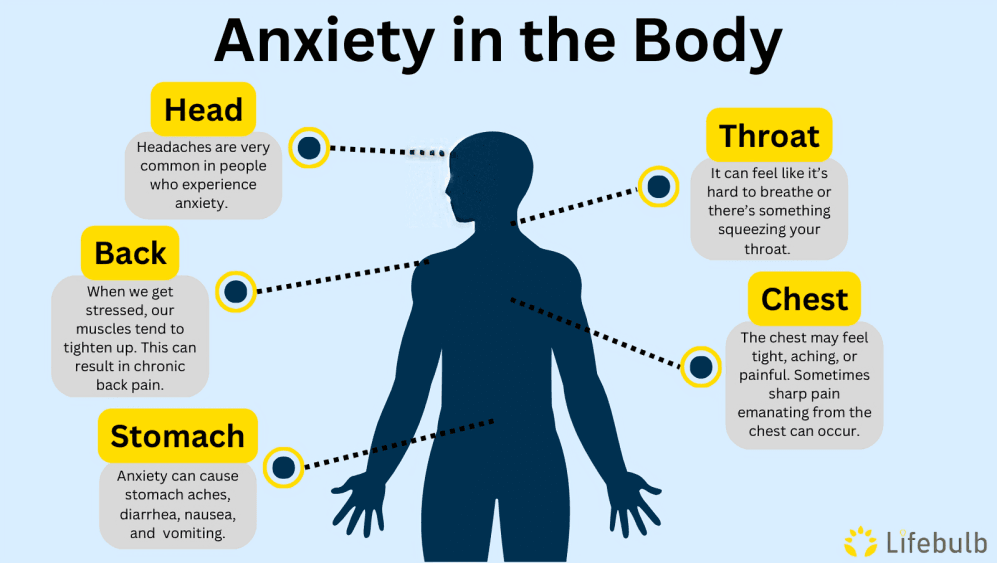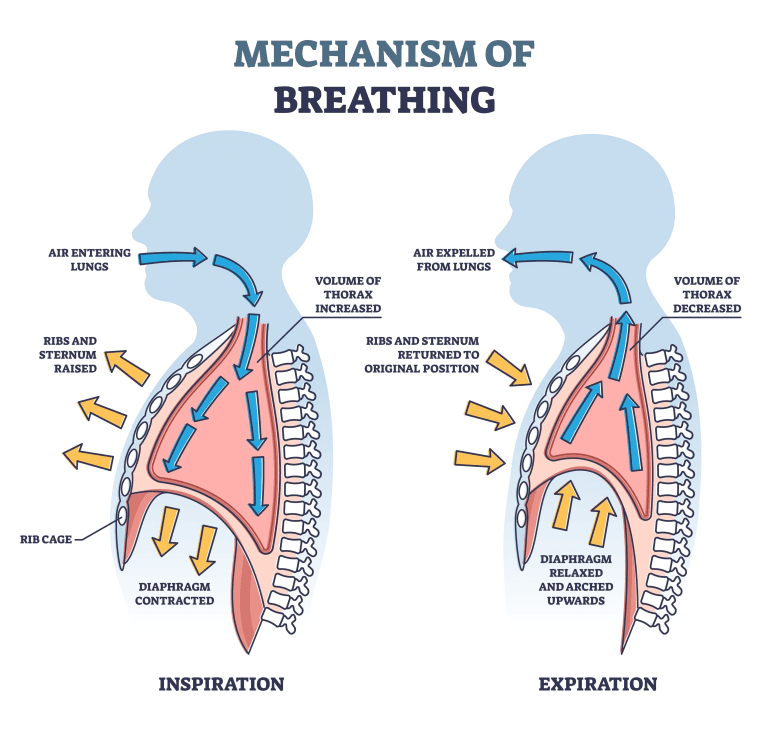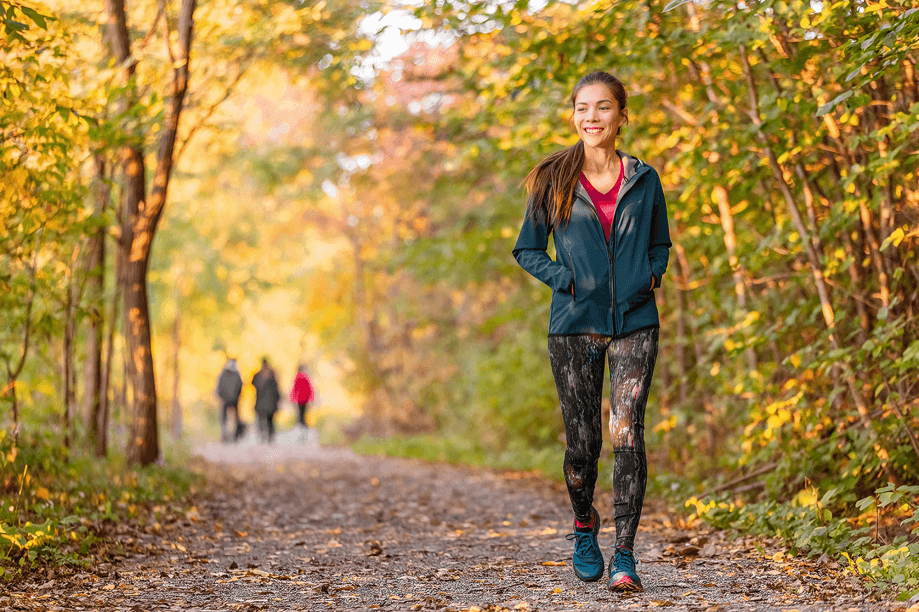
“
Facts about stress vs. anxiety are essential for managing your mental health effectively. While they may feel similar, stress vs. anxiety differ in origin, duration, and impact. This guide highlights these differences and offers helpful tips to handle both better.1
1
”
Ancient Greek physician Hippocrates believed emotional turmoil influenced bodily health. His early insight into the mind-body link laid the groundwork for understanding how anxiety and stress impact physical health. 1
Stress generally arises when external pressures exceed personal resources, like work overload or financial strain. In contrast, anxiety is more internal, driven by persistent fear or worry without an immediate threat. 2
When the triggering situation passes, stress usually fades. Anxiety, however, can remain long after a threat is gone, sometimes leading to chronic unease and even interfering with daily functioning or sleep. 3

Stress causes physical symptoms like neck tension, stomach pain, or headaches, while anxiety often shows up as dizziness, chest tightness, or uncontrollable worry, especially in situations involving uncertainty or fear.
Long-term stress increases the risk of serious illnesses like hypertension and cardiovascular disease. Prolonged anxiety, however, may contribute to panic disorder or generalized anxiety disorder if not addressed properly. 4
Managing stress effectively may involve time management, rest, and problem-solving skills. Anxiety, on the other hand, often needs deeper strategies like cognitive-behavioral therapy. 5

Deep breathing, especially diaphragmatic breathing, helps calm the body’s sympathetic nervous system, offering immediate relief from acute stress and reducing anxiety by slowing heart rate and stabilizing blood pressure.
Progressive muscle relaxation helps relieve physical tension by teaching individuals how to release built-up stress through cycles of tightening various muscle groups. It’s especially helpful for anxious body stiffness. 6
Regular exercise boosts endorphin levels, which helps reduce stress and relieve anxiety symptoms. Even 30 minutes of walking daily improves mood, lowers cortisol, and enhances overall mental and emotional resilience. 7
Reducing caffeine and alcohol intake can improve mental clarity and prevent overstimulation of the nervous system, which often worsens anxious thoughts and increases the intensity of stress responses. 8
A balanced diet rich in B vitamins, magnesium, and omega-3 fatty acids supports brain function and stabilizes mood, reducing the likelihood of emotional reactivity under stress or during anxious episodes. 9
Acceptance and Commitment Therapy (ACT) promotes psychological flexibility by teaching individuals to accept negative thoughts and emotions instead of avoiding them, allowing them to live meaningful lives despite anxiety. 10
Biofeedback trains individuals to control heart rate, breathing, and other bodily responses through real-time monitoring. It’s effective in managing physiological symptoms of anxiety and stress. 11
Art therapy encourages self-expression through creative activities, offering emotional release and distraction. This is especially useful when verbal communication of stress or anxiety feels too overwhelming or unclear. 12
Aromatherapy using essential oils like lavender, sandalwood, or chamomile can promote relaxation, lower cortisol levels, and reduce symptoms associated with mild anxiety or temporary stress. 13
Austrian neurologist Sigmund Freud’s early work on neuroses and repressed anxiety laid the foundation for modern psychoanalysis, helping the world understand unconscious fears and their impact on emotional stress. 14

Spending time in natural environments, even brief walks in a park, significantly lowers cortisol and helps regulate mood. Nature immersion reduces stress levels and is linked to improved mental focus.
Reducing screen time—especially scrolling through news or social media before bedtime—can improve sleep hygiene, decrease overstimulation, and reduce anticipatory anxiety and nighttime worry loops. 15
Setting personal boundaries, like saying no to additional commitments or taking breaks when needed, helps prevent burnout and avoids the anxiety that comes from constant overexertion or people-pleasing. 16
When stress or anxiety persistently interferes with daily life, professional help from a psychologist or psychiatrist can provide diagnosis, coping strategies, and sometimes medication to manage symptoms. 17


